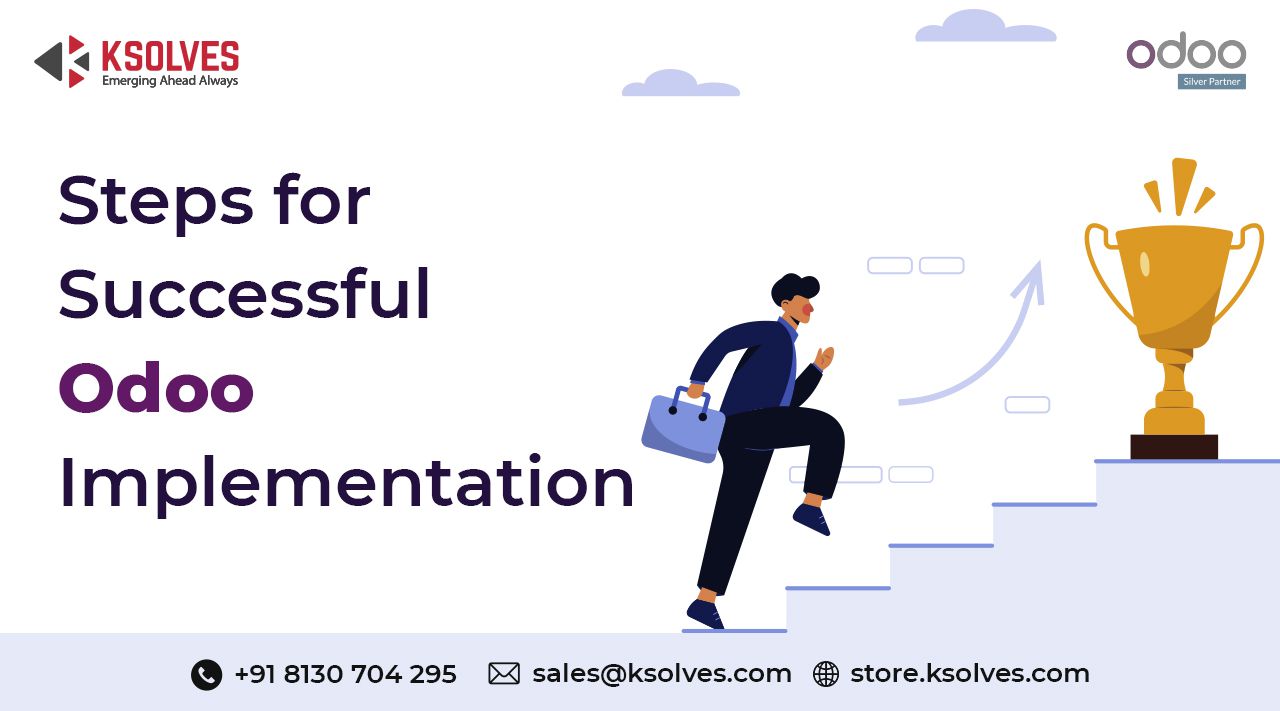Odoo
5 MIN READ
July 2, 2021
![]()

It’s not been very long for the Odoo to arrive in the market, but still, it managed to become one of the fastest-growing and promising Open source ERP software across the world. It is an exclusive ERP system as its source code is readily available in public & can be personalized and enhanced by the online developers’ community. Odoo is an all-encompassing suite of applications fitting flawlessly into the budgets of small, medium & large business organizations for the efficient implementation of their administration and management activities. Odoo implementation saves lots of time & money and also boosts up the organization’s growth when performed in the right manner.
With over 2 million users & more than 15,000 Odoo Applications, Odoo is making new records in the field of software development. Being a comprehensive suite of business apps & modules, it is ranked high in the business sphere. As it offers high-degree customization to the users, it becomes fit to meet the exact requirements of every organization. Along with the adjustable database configurations, it employs a modular system and begins with the basic features allowing the companies to adjoin features via modules. These modules are either accessible in the app store of Odoo or can easily be developed with the help of an Odoo expert.
The business review takes place at the beginning of any sales process. The motive is to bring together the overall knowledge of the business situation as well as the further requirements related to it. Business review is our first Odoo Implementation step, and it gets done through communicating to the company & its users.
The next step is the Project Planning & Gap Analysis in our Odoo Implementation process.
i. Gap Analysis
A GAP analysis collects all the specifications of your project and arrives at an estimation showing the gap between the covered parts in standard & those which need specific development.
ii. Project Planning
• Sharing the layout of the project with your team for identifying the discrete responsibilities, tasks, and timelines required for the project.
• Creating appropriate system policies to maintain and back-up the data
• Performing tasks according to the Odoo Implementation Plan of the Project Team
• Establishment of the requisite custom reports
This process of Odoo Implementation includes customizing, installing as well as upgrading the Odoo modules. The modifications are stored in the test database so that the project’s pilot testing can be done.
i. Sprint Planning Meeting (Takes place at the beginning of every sprint):
At the beginning of every sprint, the “Sprint Planning Meeting” will be held for which the project team will meet. During this meeting, the team decides which items of the Product Backlog can get concluded for the approaching Sprint. If any new requirements get discovered, they would be updated during this meeting/session.
ii. End-User Training:
During this training, some key areas will get addressed, the examples of which are:
• How to carry out transactions in various ways
• How to sustain the collecting data in your systems
• How to make use of inquiries & reports to attain the information that you will be accessing
• How to get done with the period & year-end processes in each Odoo module
iii. Conference Room Pilot Testing:
The test of Conference Room Pilot is based upon the processes developed by the business processes engineering, and has three functions:
• Testing of the setup of your system
• Proving the viability of the work instructions and re-engineered processes
• Providing additional training to the team members simulating their usual daily activities
iv. Go-Live:
During this go-live phase, we make sure that all needs have been met for an effortless transition into the brand new business system. At this time, all tasks that are on our project plan get completed, all users get trained, all processes get re-engineered & the final data conversion/ migration gets executed.
This is the last step of Odoo Implementation. A plan will be discussed for in-progress improvement & the project planning may be scheduled for additional stages of your Odoo implementation.
In this blog, we have read about the steps to implement Odoo in your system successfully. We have learned about different implementation stages in Odoo along with the Implementation plan. For Odoo Support & maintenance, reach out to the Odoo Silver Partner, Ksolves India Limited. We cover all Odoo services along with the implementation process. For any queries, you can contact our Odoo experts.
Contact Us for any Query
Email: sales@ksolves.com
Call : +91 8130704295
![]()